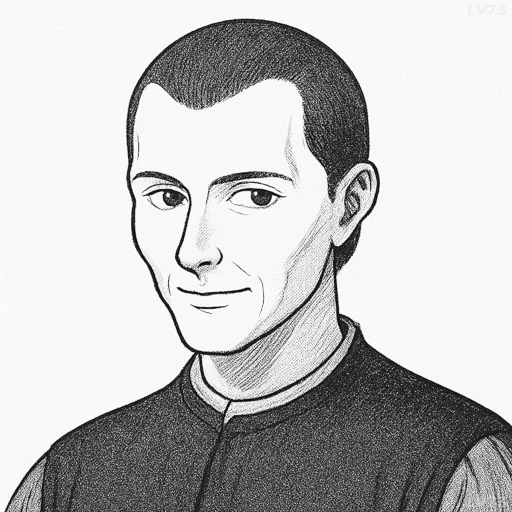“Of mankind we may say in general they are fickle, hypocritical, and greedy of gain.”

- May 3, 1469 – June 21, 1527
- Born in the Republic of Florence (Italy)
- Political thinker and diplomat
table of contents
Quote
“Of mankind we may say in general they are fickle, hypocritical, and greedy of gain.”
Explanation
This quote by Niccolò Machiavelli reflects his famously cynical view of human nature. In his works, especially The Prince, Machiavelli often discusses the flaws he perceives in humanity, noting that people are inconsistent (fickle), prone to deception (hypocritical), and driven by self-interest (greedy of gain). His perspective is shaped by the turbulent political climate of his time, where power struggles, betrayals, and shifting allegiances were common in the fractured states of Renaissance Italy. This pessimistic view contrasts with more idealistic philosophical traditions that emphasize the nobler aspects of human character.
Machiavelli’s view on human nature is grounded in his pragmatic approach to politics, where rulers must understand these base tendencies to govern effectively. He believed that a successful ruler should not be surprised or overly affected by the fickleness or hypocrisy of the people but should instead use these characteristics to their advantage. For instance, a ruler might need to act deceptively or make promises they do not intend to keep, knowing that the populace, too, is prone to shifting loyalties and desires. The greed of the people is something that can be leveraged through rewards and incentives, as long as the ruler keeps them satisfied.
In modern contexts, this quote resonates in areas such as politics, corporate governance, and international relations, where self-interest often drives actions, and the need for pragmatic, sometimes ruthless decision-making is evident. For example, in business negotiations, the behavior of stakeholders can be influenced by short-term gain rather than long-term collaboration, and in political campaigns, candidates may exploit voter fickleness by adjusting their messages to suit prevailing public sentiment. The underlying truth in Machiavelli’s statement remains that human behavior, while capable of great altruism, is often shaped by personal benefit and the desire for control or advantage.
Would you like to share your impressions or related stories about this quote in the comments section?
